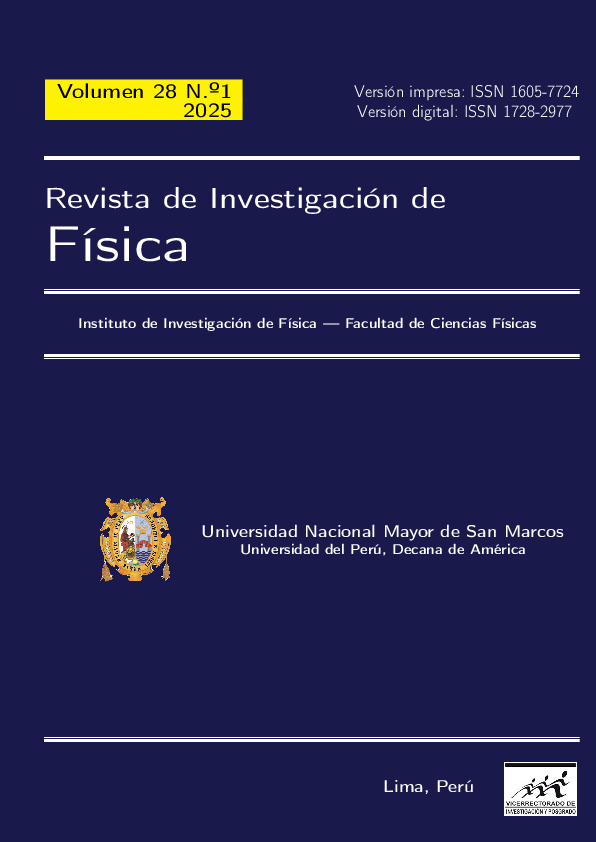Implications of Quantum Measurement on the Nature of Reality
DOI:
https://doi.org/10.15381/rif.v28i1.29411Keywords:
Quantum measurement, objective reality, quantum superposition principle, uncertainty principle, organized informationAbstract
The problem of quantum measurement is analyzed, showing its limitations, when trying to reach objective reality starting from the conventional perspective that the universe is an isolated and self-contained system. The fundamental aspects on which the analysis of quantum measurement is based are the quantum superposition principle and the Heisenberg uncertainty principle. The result that the quantum superposition principle leads to is that the process of quantum measurement would never end when trying to reach objective reality. Using the wave packet model, the result that Heisenberg's uncertainty principle leads to is that the harmonic waves that make up the packet have a constant phase difference, which corresponds to a vibration or fraction of vibration, contradicting the nature of the field. quantum. By using Fourier analysis, it is deduced that the state of a physical system would be completely defined by a spectral distribution of vibration frequencies and, furthermore, it is deduced that every physical system would have a fundamental resonance frequency associated with the underlying vacuum of the system. Consequently, measuring devices designed based on the new proposal would have increasingly greater resolving power, as long as their operating frequency is close to the system's resonance frequency.
Downloads
Published
Issue
Section
License
Copyright (c) 2025 Oscar Monroy, Marco Merma, Javier Montenegro

This work is licensed under a Creative Commons Attribution 4.0 International License.
THE AUTHORS RETAIN THEIR RIGHTS:
a. The authors retain their trademark and patent rights, as well as any process or procedure described in the article.
b. The authors retain the right to share, copy, distribute, perform and publicly communicate the article published in the Revista de Investigación de Física (for example, place it in an institutional repository or publish it in a book), with an acknowledgment of its initial publication in the Revista de Investigación de Física.
c. The authors retain the right to make a subsequent publication of their work, to use the article or any part of it (for example: a compilation of their works, notes for conferences, thesis, or for a book), provided that they indicate the source. of publication (authors of the work, journal, volume, number and date).






